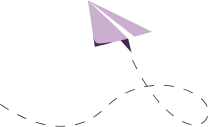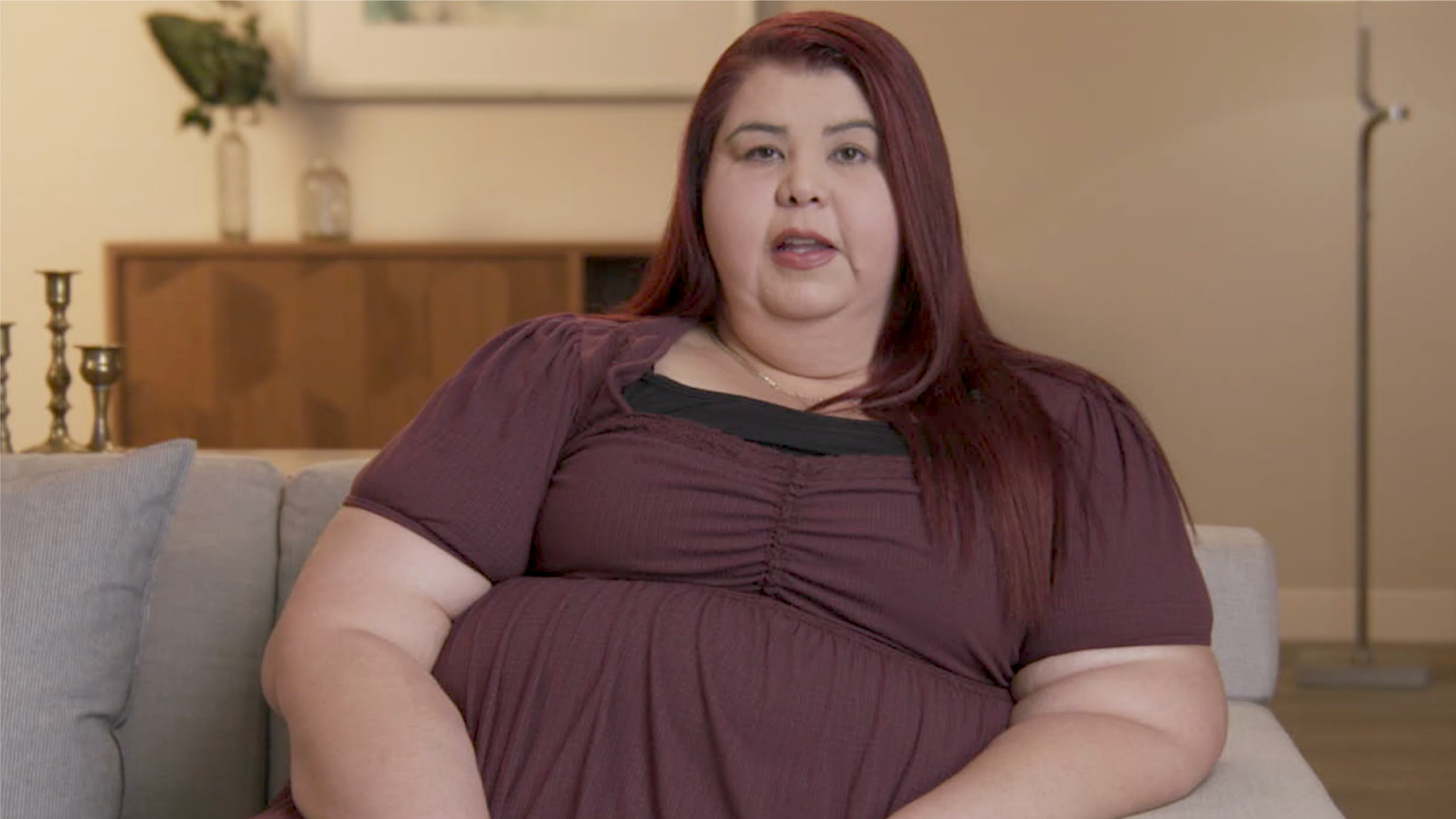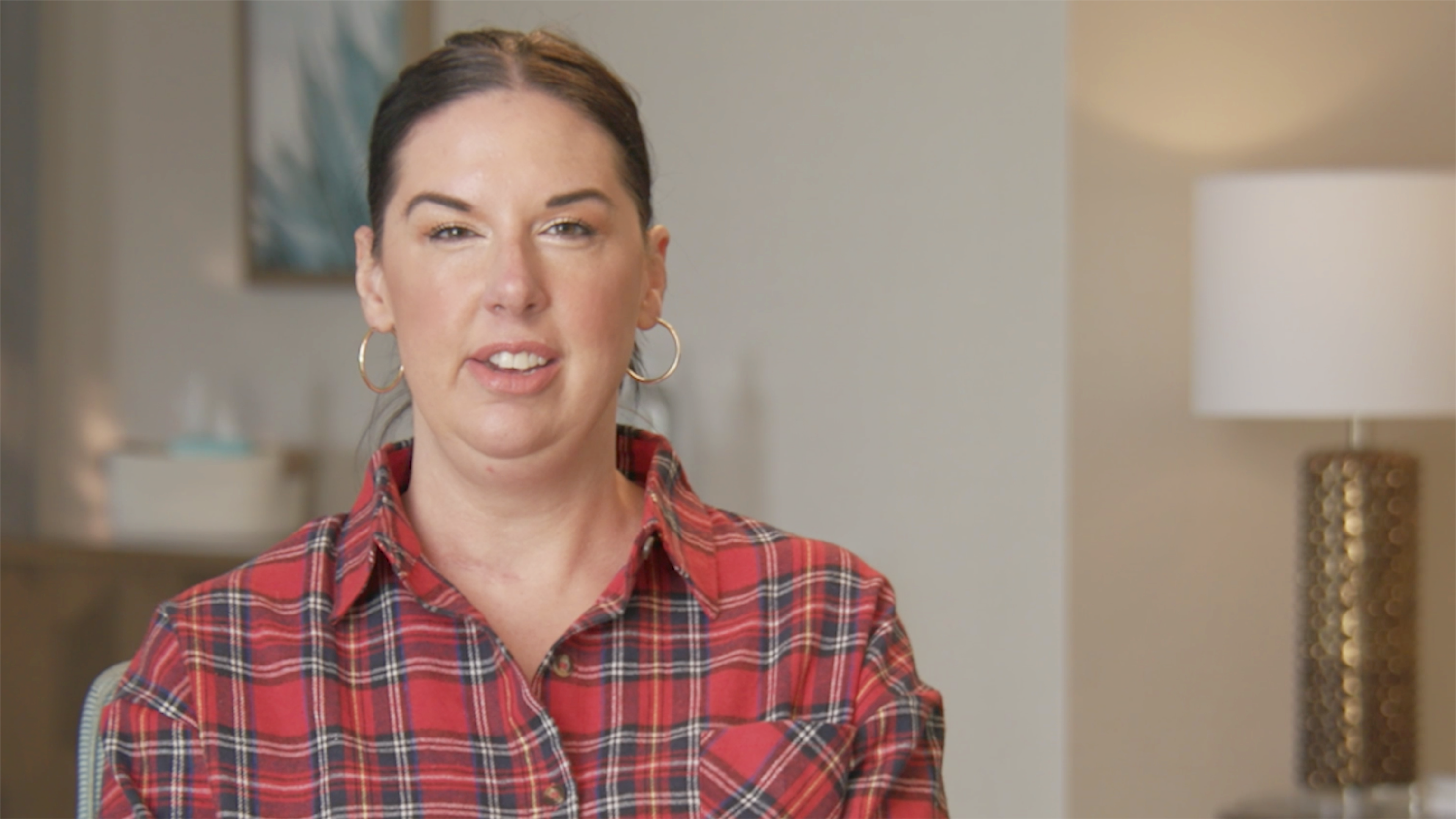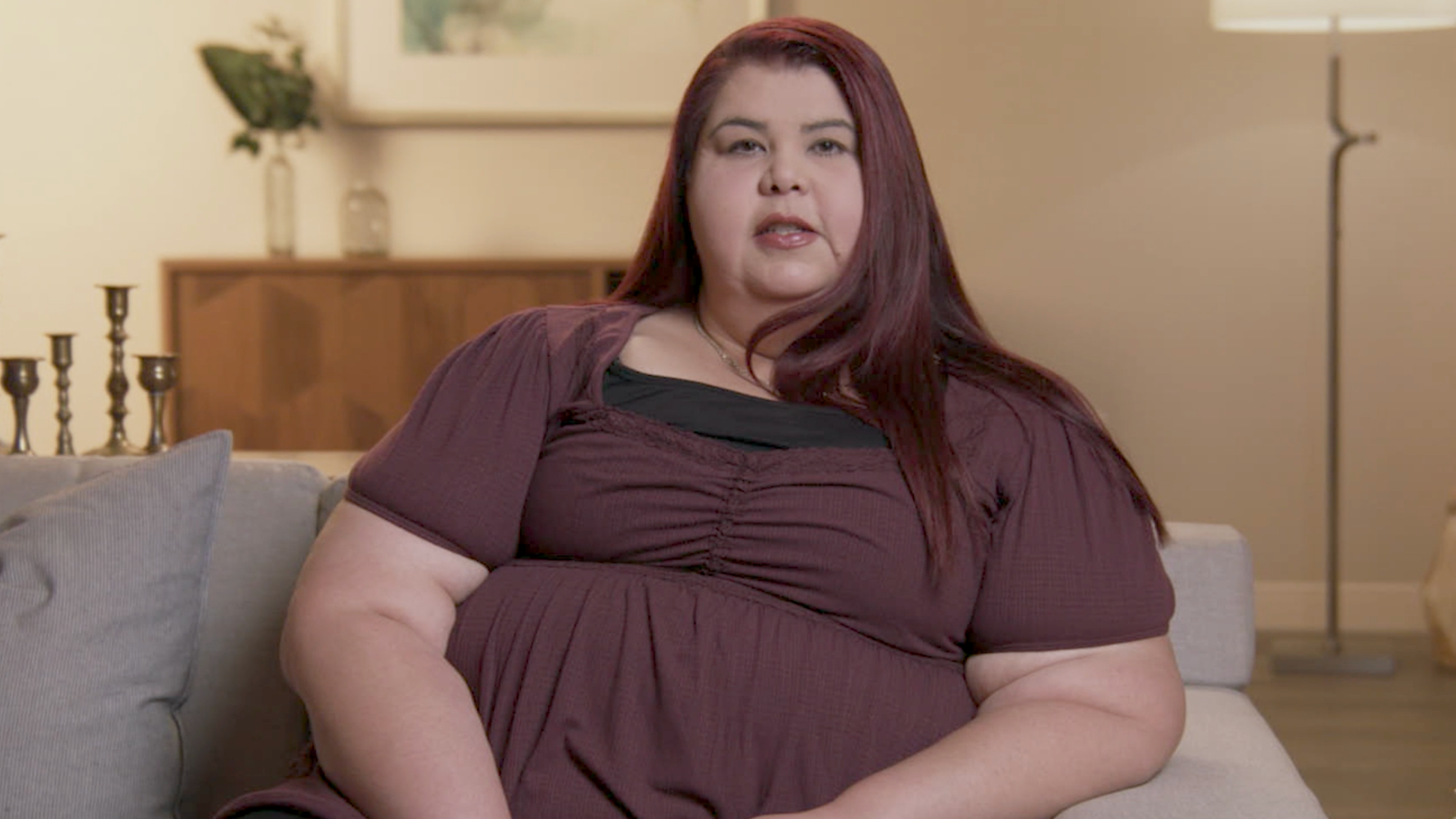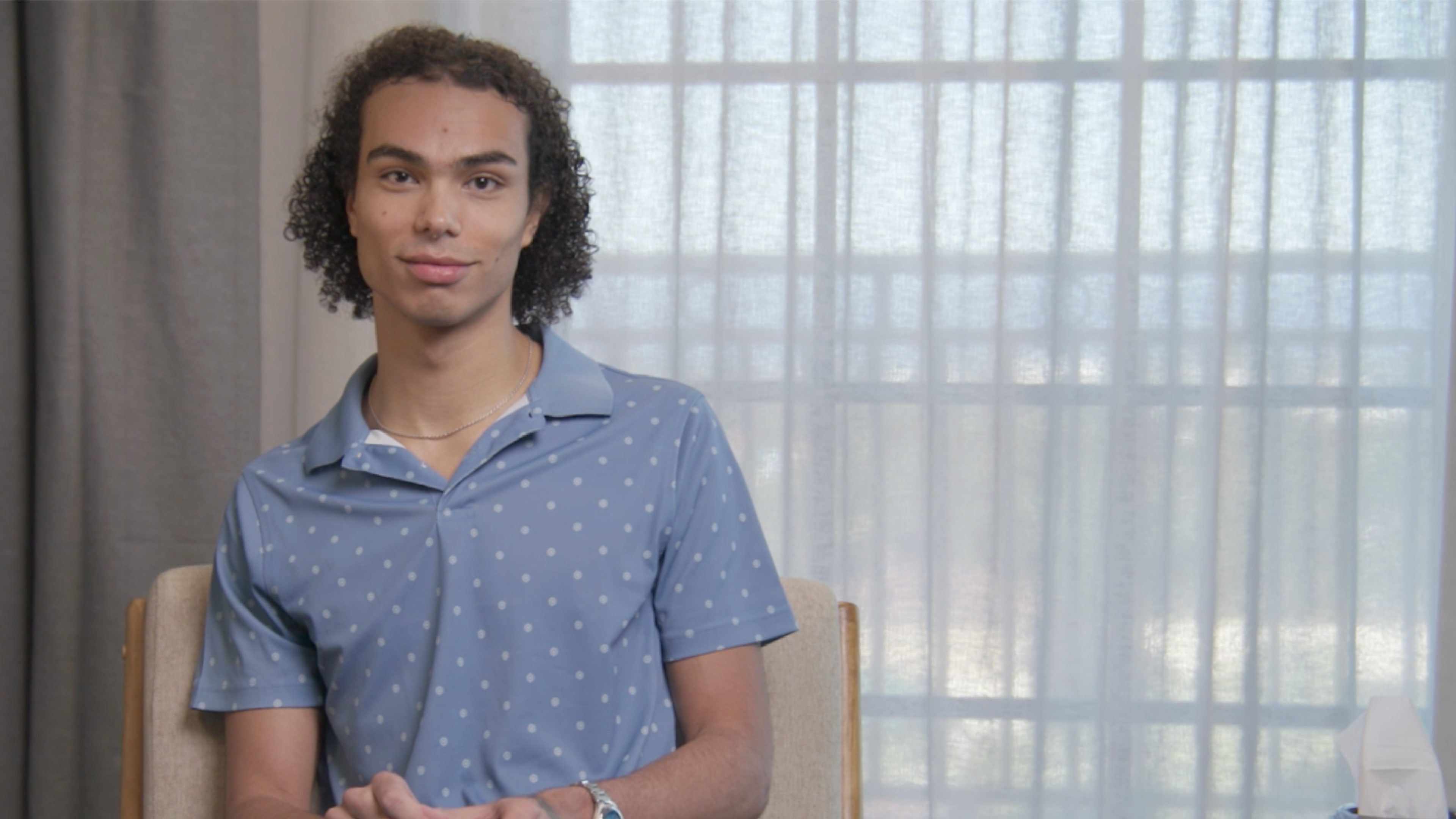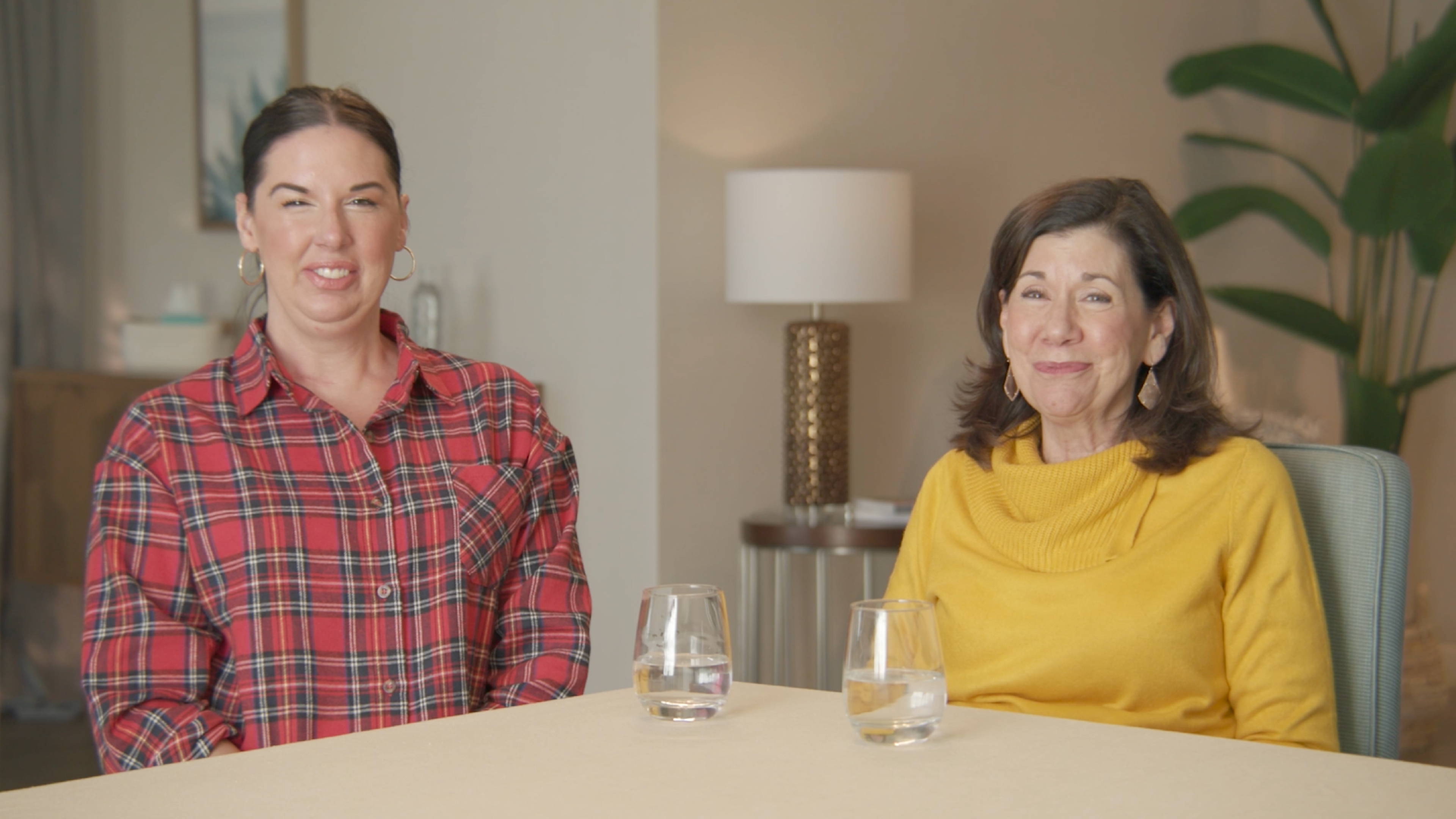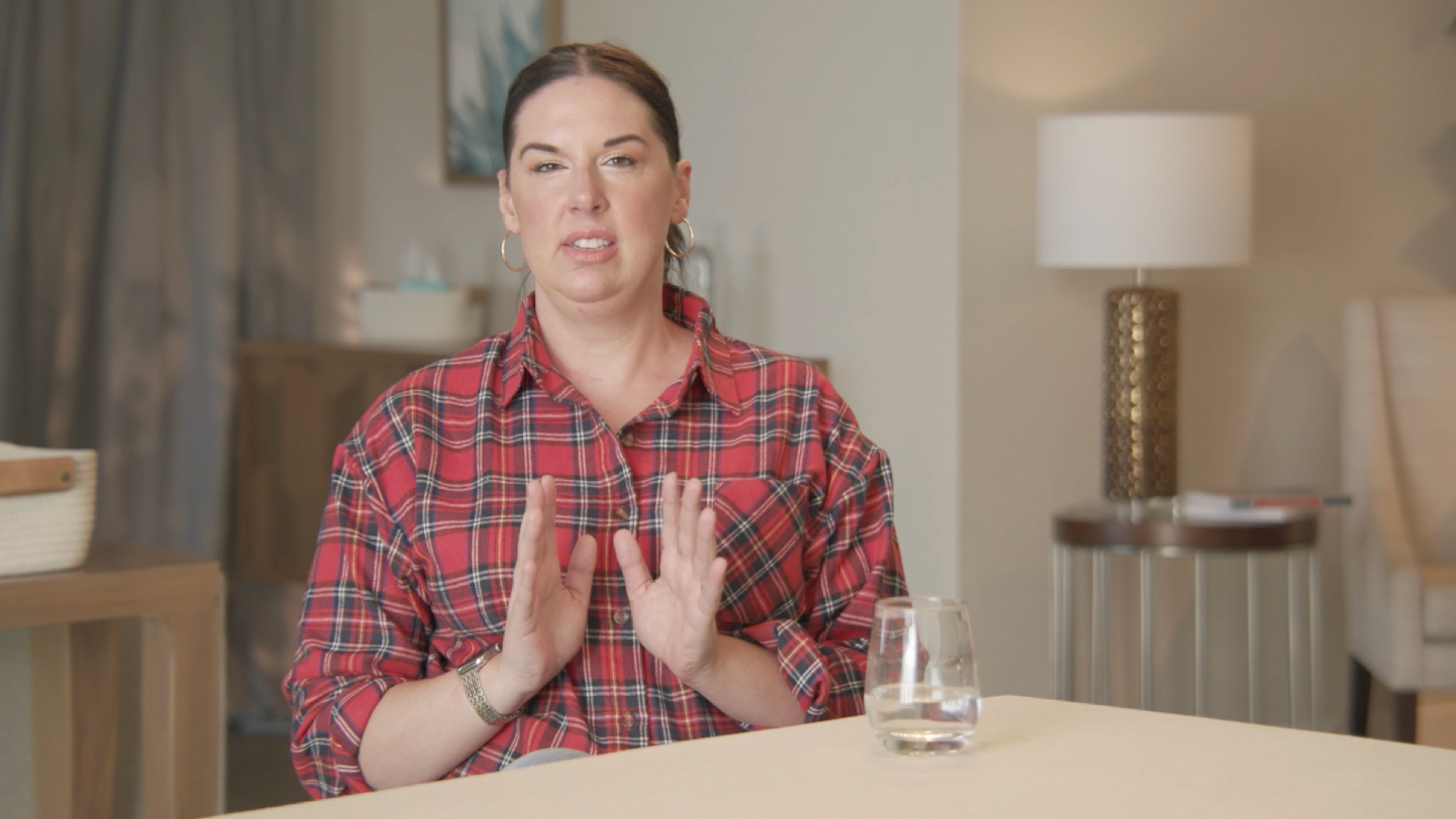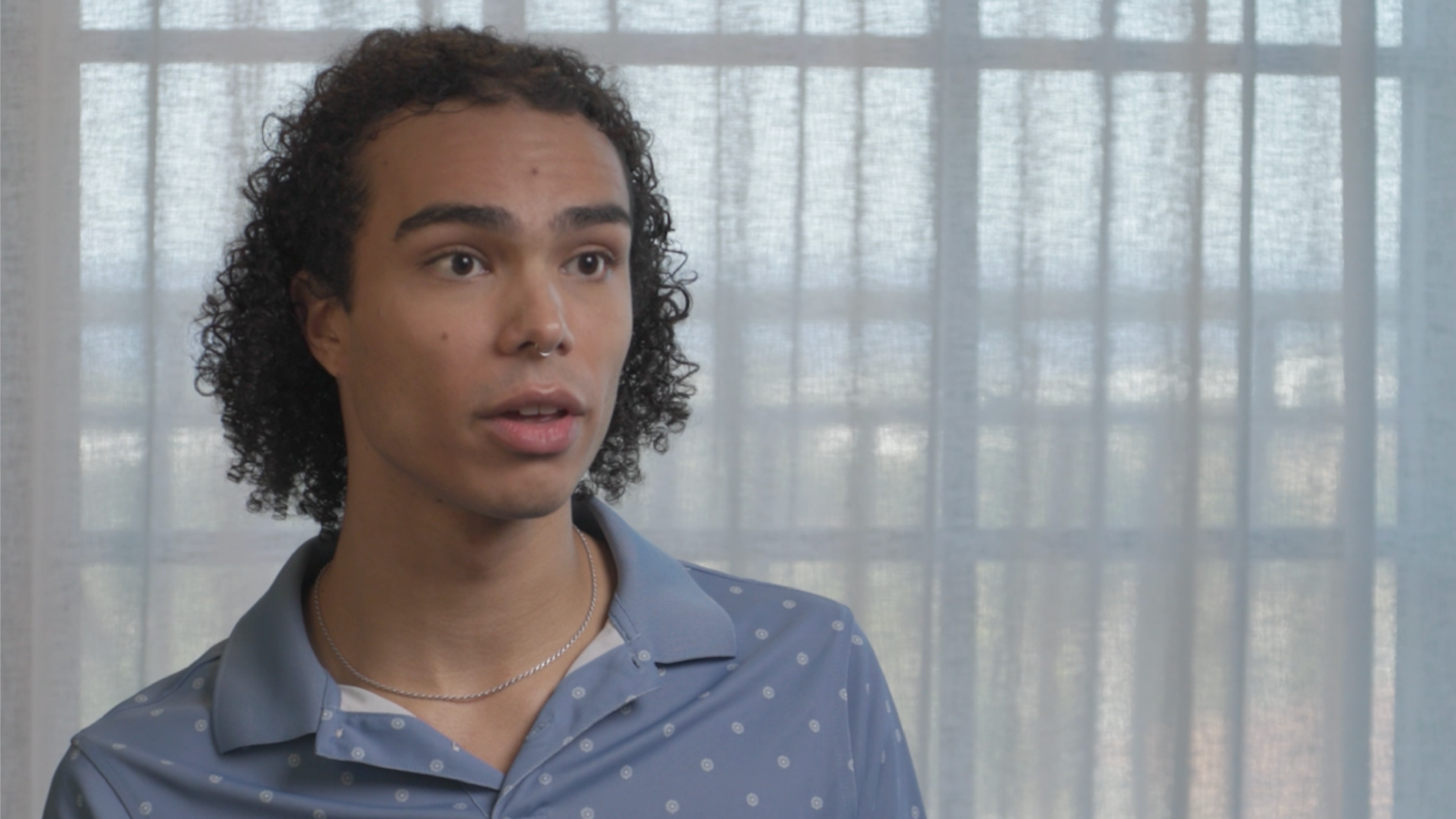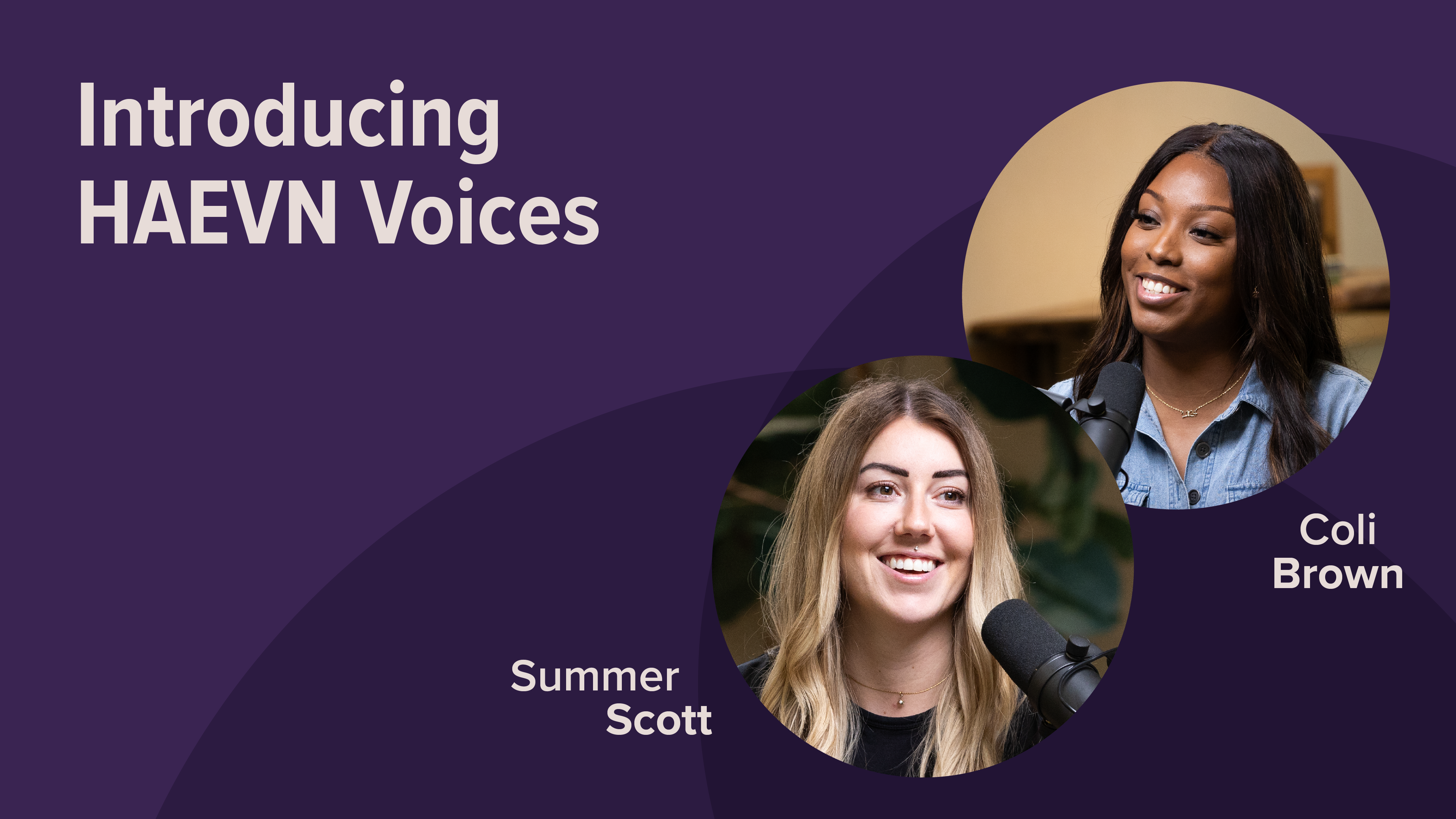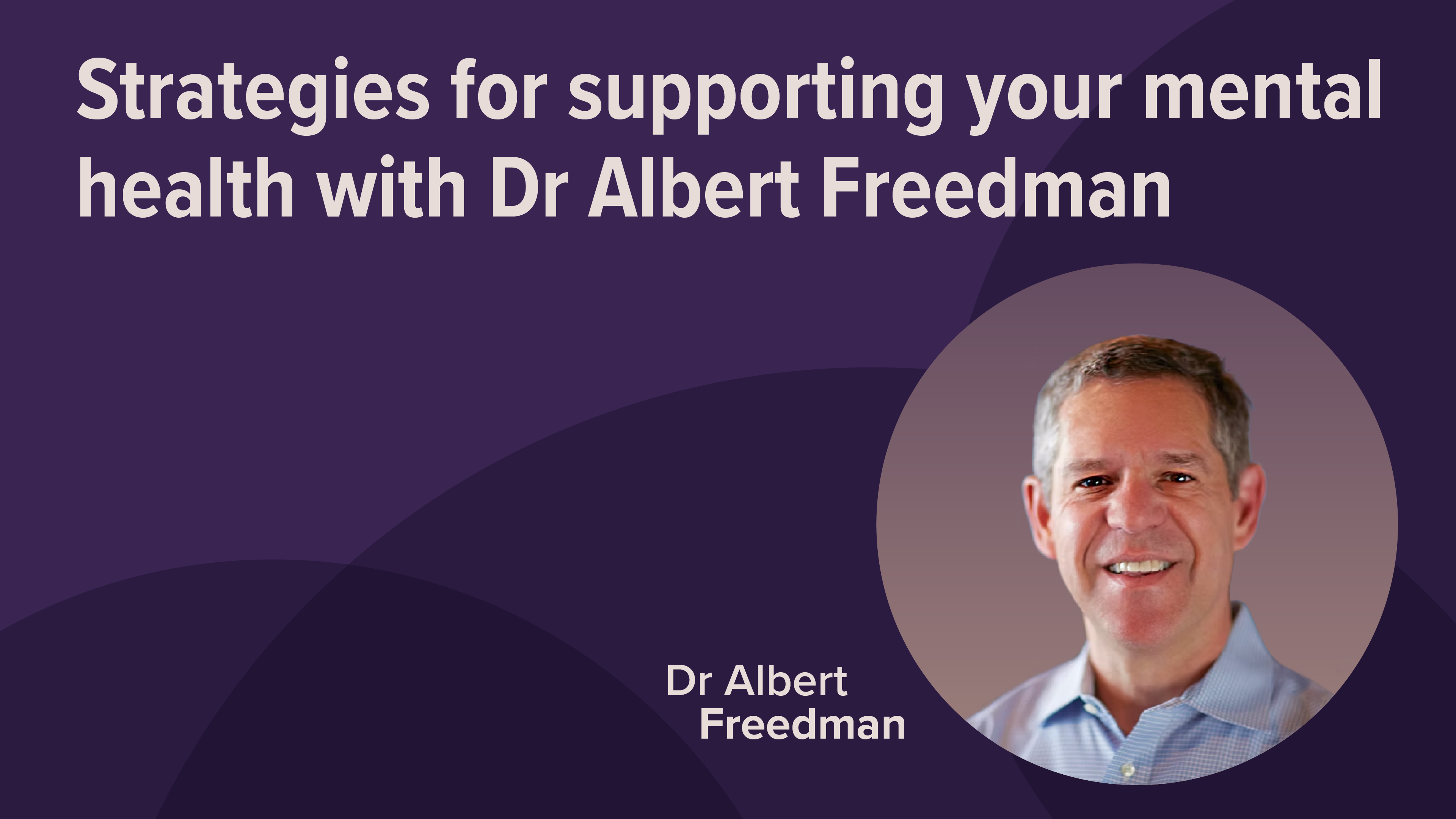SUMMER:
Welcome to HAEVN Voices, a series that aims to address the unique mental health challenges associated with managing a chronic, rare condition like hereditary angioedema, also called HAE.
COLI:
With these conversations, our hope is to promote emotional well-being and create a sense of community by sharing personal stories, expert insights, and practical coping strategies for living with or caring for someone with HAE.
SUMMER:
Let’s get into it.
Hi everyone and welcome to HAEVN Voices. I'm Summer.
COLI:
And I'm Coli.
SUMMER:
And today we are talking with Dr. Al Freedman, a psychologist specializing in supporting patients and families affected by rare diseases, disabilities, and medically complex conditions. He's joining us today to help us understand and navigate the impact of HAE on mental health and emotional well-being.
Big welcome to Dr. Freedman. Dr. Freedman, question for you. I'm curious, what led you to a career that specializes in supporting families affected by rare diseases?
DR. FREEDMAN:
Thank you, Summer and Coli. First, thank you very much for having me. I'm honored to be here. And to answer your question, I was in training to be a psychologist, and as I was finishing my doctoral training, uh, we had a baby boy named Jack, who was born in 1995 and born healthy. But at the age of six months, baby Jack was diagnosed with at the time an untreatable neuromuscular disease called spinal muscular atrophy or SMA.
And we were told that baby Jack would live only for a year from the time of his diagnosis. Thankfully, Baby Jack grew up and lived to the age of 26. He passed away three years ago, but we were very, very lucky to have him for 26 years. And his life was full of challenges, but also full of some very special gifts.
Because of my son, I chose to specialize in helping other families who face similar challenges with rare disease.
So I consider it a great privilege to do this work and consider it a privilege to honor my son through my work. And I'm happy to be here today with you.
SUMMER:
Well, we certainly appreciate you taking the time to speak with us. You know, as people who suffer from hereditary angioedema, it could be very mentally challenging. You know, there's a lot of mental health issues that go along with it. And so, you know, it was really important for us to have you on the show so we can talk to someone who understands it.
So I'm curious, based on the work that you've done, how have you felt the similarities have been between different rare diseases. Are there a lot of similarities? Is it quite different?
DR. FREEDMAN:
Yeah. Uh, each of these rare diseases that, uh, that I help with are very different in terms of the medical challenges and the medical symptoms. HAE is entirely different medically than my son's condition, SMA. But the psychological challenges and the types of stressors that we face within the rare disease communities, there are many commonalities.
First, the diagnosis of a rare disease is a life altering moment for many of us. I myself went from having a healthy baby boy one day to having a baby who wasn't expected to live another year four days later. That was our diagnostic journey. It was abrupt, and it really was a trauma for me, and for my family. And whether that experience of diagnosis takes four hours or four days or four years or fourteen years, it's very complicated, and we find that the life that we thought we'd have isn't the life that we do have moving forward.
So the adjustment to the new world that you find yourself in is very complicated for many. I call it the twilight zone. I felt like I'd been launched to the twilight zone when our baby was diagnosed into this place that nobody else possibly could understand. And, uh, it was very disorienting, and it took me quite a while to get my feet under me.
And I'm a psychologist. So, the experience of a diagnosis is the first area that I see that requires special support and is very common across rare diseases. The second area that we all have in common is the life of uncertainty. The symptoms that the two of you experience with HAE can be unpredictable.
And it's hard for all of us to live not knowing what's going to happen. What's going to happen next? Um, I drove around for 26 years with a suitcase of clothes in my car and a toothbrush, because we ended up in the hospital with baby Jack quite often over those 26 years. And it's a hard way to live.
Living with uncertainty is, is hard. The uncertainty takes many forms. There's the existential. What is going to become of me and how do I fit into the world? Is there a place for me in the world? What does this mean in terms of my life?
So living with uncertainty is a common challenge. And then there's dealing with the healthcare system. If you have, as you do, a disease that's invisible most of the time or much of the time, that presents different challenges.
And where do you find hope? And how does community help? So, these are the common themes across rare diseases and they cut across all rare diseases in all countries.
SUMMER:
Of course, you know, there's something very comforting about that statement that there's so many similarities amongst rare disease. There's also the scary aspect of it. I mean, both Coli and myself, we, we suffer from the disease. Stress is a huge factor in hereditary angioedema and, you know, facing stress on a daily basis is fairly inevitable.
So when that becomes, you know, part of the triggers or part of the reactions, that can be very hard . And so, you know, what kind of coping strategies are there when it comes to people with HAE or any rare disease dealing with those daily uncertainties that you mentioned?
DR. FREEDMAN:
Yes, the first thing we all need, whether we have a rare disease or not, is connection. And when we have a rare disease, it's very common for, for our families to feel isolated. We're a person with a rare disease, we often feel different than everybody else and we feel isolated. And because of that, we sometimes don't have enough connection.
So I'm not sure this falls in the category of quote, coping strategy, but I start with the basics. We all need to have a sense of connection with our family, with our friends, with our work and with others who share the same challenges. So, I often talk and assess a client's need based on that spectrum of connection or disconnection and strive for connection.
That being said, in terms of, quote, coping strategies, everybody's different. And for some people, meditation is really helpful. For other people, listening to music is helpful. For other people, taking a walk is helpful. For other people, going to a football game or watching TV is helpful. For other people, talking to a therapist is helpful.
For some people, exercise is helpful in whatever form you can safely exercise. So, it's not a one size fits all list, it's a find your route to what works for you list in terms of coping strategies. With rare disease, I find it remarkably powerful when people have each other.
And I'm finding as a psychologist that there's as much power or more power in the group experience than the individual experience because there's so much knowledge, there's so much compassion, there's so much support, and there's so many shared experiences that are rare to everybody else but not rare to you if you're a member of this club you didn't choose to join.
SUMMER:
That's a really good point. That kind of leads me to talk about how difficult it can be to open up about your disease journey. And Coli, I know this is something that you and I have chatted about in the past, how we have very different approaches and stories when it comes to our comfort levels with speaking about the disease, especially early on when we were diagnosed.
Do you want to maybe talk to Dr. Freedman about your experience and just what do you do when you're someone who isn't maybe as comfortable opening up about the disease in the first place?
COLI:
I think the biggest thing with speaking on something that I was newly diagnosed with, I think at first, it was more of me getting more of an understanding of it. Because once you bring up the subject, it's okay. So, what about it? Can you tell me more about it? And I think at the beginning, it was more so what do I have and me understanding what I actually have and how to explain it to others that didn't really know.
And I think that kind of goes into my next question, because the biggest thing that did help me was, was my caregiver, which was my mom. She really implanted inside of me that, um, I was not abnormal and that I could do just as much as anybody else and that I shouldn't hide, uh, you know, what I had because it was a part of me.
So you expressed that you had a son with SMA and thank you so much for sharing that story about him. But being that you did experience that within your family and possibly talk to patients that have rare diseases, can you speak about the common challenges that rare disease patients have and how those challenges can be overcame within the family between the relationship between the patient and the caregiver.
DR. FREEDMAN:
Yeah, sure. And just to comment on what you said, when you're newly diagnosed, it's very different. In the beginning, I went to my first conference with other SMA families a few months after my baby was diagnosed. And I remember thinking, well, if I don't go to the registration table and sign in and get a name tag, maybe this will all go away.
You know, like I, I first had to accept the fact that this was real for me was step one. And thankfully I did sign up and get my name tag. And then step two was watching the other children and the other families and accepting the fact that I really had to be a member of this club. I didn't choose to be.
You didn't either. And then you take steps in. It's like when you go to a swimming pool and stick your toe in the water and then you sit next to the water and put your feet in. It goes in steps for most people. Their comfort level with interacting about your disease and talking about it. Because you just don't know what to do for a while, you know.
COLI:
That's a great analogy.
DR. FREEDMAN:
Yeah, and the person that I work with professionally who's new, uh, newly diagnosed has very different needs than the person who's gotten used to it and has some practice. To answer your question, Coli, um, being a parent is a hard job no matter what.
It's a crazy job to be a parent with or without a rare disease. It's a challenging job. With a rare disease, it's even more challenging and as a dad, I'll tell you that it wasn't an easy 26 years, but I have no regrets about my son's journey. It was really hard to take care of him because of all of his medical needs.
And one of the common challenges I see when I talk with kids and adolescents and then young adults is, how do they do what most kids need to do, which is to move away from their parents rather than be dependent on their parents? Every year, at that same conference that I was afraid to get the name tag from, now I'm, for 20 years, I've been facilitating support groups for the kids, and one of the first questions the children ask me, I'm the only one in the room without a wheelchair in these groups, and the kids will drive their chairs around and we play a game and, and they'll ask me, um, Dr. Al, how can we get our parents to stop worrying about us so much? And these are seven, eight, nine, 10-year-olds. And then when the teenagers come for the teenage group, it's Dr. Al, our parents are driving us crazy, you know, like, which happens with teenagers and their parents anyway, but it's harder sometimes for kids to be able to be independent.
You want your independence as an adult and, and everybody does. These are the kinds of challenges, these are normal developmental stages that parents and kids go through that are complicated by the challenges of rare disease and the need for parents to be more involved. Then they would have been without the rare disease and the young person growing up and wanting to be like everybody else and wanting their independence.
And the parents are just so worried, you know, and there's good reason for that with a condition like HAE and a condition like SMA. Of course, parents are worried. I'd be more concerned if a parent wasn't worried. It's a matter of how much worry and how does it play out in the dynamic.
COLI:
I'm sure that's like a huge process for parents to kind of, you know, contemplate and try to figure out how to get through it. From your perspective, how important is it for caregivers or parents to like maybe seek mental guidance or help with the experience?
DR. FREEDMAN:
I think every parent I know who's had a child with a rare disease needs support. Whether or not it's formal support from a licensed mental health professional is another question. Sometimes that's needed and helpful and sometimes it's not needed. Support can come from many places. The other parents who had kids like Jack were probably the most valuable sources of knowledge and support early on for me rather than the therapist or the doctor.
And sometimes a parent will benefit from mental health support and sometimes a parent will benefit from peer support from their rare disease community and other parents. Some of the other parents that, that our kids grew up together from 25 years, 30 years ago, we're still friends and we will always be friends with or without our kids because we helped each other, support each other through a lot of challenging situations. It's like another family. I consider this community an extended family, both the parents and the kids. So, we all need support.
SUMMER:
That's a good point. I really like your quote. You know, we didn't choose to be a member of this club. I think that's so valid and hearing that is nice because I think daily we go through that gamut, right? Of, I didn't choose this life. Like, why? Why is this my life? And I think a lot of people suffering from HAE, especially, we deal with the emotional journey that comes with having a rare disease, and you know, it's that feeling of hopelessness or frustration, sadness, sometimes it's the loss of your former self or the things that you can't do that others can do and that can be a very lonely place.
And I know that's been my experience of that emotional rollercoaster that comes with the day-to-day challenges of dealing with a rare disease. Is that something that you encounter a lot in your practice?
DR. FREEDMAN:
It's exactly what I encounter in my practice. Everything you just described, Summer, is what I encounter in my practice, that existential level. Why me? How do I fit in the world? What does this mean for, for my life and my family? And how do I manage all this? It's very, very common. And it's also the reality that our attention in rare disease has to go to our medical needs and our physical well-being first, and the attention to mental health within rare disease often lags behind the attention to physical health because you have to be alive before you can talk about how you feel about it.
I, I would tell you that for 26 years, I was so busy managing the day-to-day challenges, keeping my son alive that I didn't have a whole lot of time to talk about how I felt. I was wanting to make sure that the ventilator was charged up and that the wheelchair lift on the van was working and the nurse who was supposed to help overnight was going to show up or I would be the nurse.
And you also with HAE have a lot of uncertainty. You have a significant disruption when you have swelling, you have symptoms. And the unpredictability and the disruption of those symptoms and your attention to your medical needs has to be first and the rest come second for obvious reasons. They're no less important, they're just different types of important and I feel very obligated to support families like yours and mine because there's so few of us who, uh, have experience in this arena.
And so I, I call my son professor Jack cause I learned a lot in school, but I wouldn't be on here with you if I was a PhD psychologist and I hadn't had Jack, professor Jack, train me and taught me what I need to know to help other families who face these challenges.
SUMMER:
Of course. Well, I think that's a really good point. And it's nice too, because sometimes you forget about those caring for somebody with a rare disease. And as much as, you know, I want to turn the conversation to those of us suffering from the diseases and, you know, the mental turmoil that we go through, anyone that is within the circle of someone suffering from a rare disease is also going through an array of emotions, whether it's your spouse, you know, caregiver, parent, or even just other friends and family. Having someone in your circle that is suffering from some sort of rare disease, it affects everybody and it's important for those who are caregivers to take care of their own mental health or to at least have the resources to know how to care for themselves as well as the person they're caring for.
DR. FREEDMAN:
That's right, Summer. With a rare disease diagnosis, really the whole family receives the impact of that diagnosis.
So I wholeheartedly agree with you, that the caregivers of people affected by rare disease need as much support and sometimes more than the person who's diagnosed with the condition, depending on the circumstances. We're all in this together.
COLI:
I did want to kind of go into more of the community aspect part of it. I know that a part of my community is now Summer. I met her this year and, um, just the whole HAEVN community that we now have and we're trying to communicate with the HAE community. Can you tell me more about your experience with the diagnosis of your son and how you guys were able to build a community and how important it is for other rare disease patients, no matter what they have, to build a community.
DR. FREEDMAN:
There are many types of communities that we, with a rare disease, can receive support from, and some of the challenges. Accepting that we need help and that we should allow other people to help us. We all want to be independent. We have our work communities, our school communities where kids go to school, our neighborhood communities, our faith communities.
And the community you're referring to is a special community for our families with rare disease. It's the rare disease community. Fast forward 29 years later, this community is to me part of my family.
And I'm very much a part of the community and feel very proud with how everybody supports each other. But the most important thing is the emotional support because we all have this unusual thing in common.
I found a lot of support and a lot of fuel came into my tank emotionally. As soon as I felt I had found other people who were, who had also been launched into the twilight zone.
These people in the community helped me to navigate so many unusual things that I wouldn't have been able to do myself. But most importantly, Coli, uh, our community understands each other and supports each other and there's such strength in numbers.
To me, community is, is vitally important to all of us affected by rare disease.
SUMMER:
Thank you so much, Dr. Freedman. This was incredible having you here chatting with us. You know, it means a lot to us. You, you understand as best as anyone can understand, you know, what we're going through and being able to work with someone who really has experienced it firsthand. That's impactful to our community.
So, I just wanted to say thank you so much for joining us today. We've made a friend and we just, we've learned so much, really appreciate your time.
DR. FREEDMAN:
And I've made two new friends and what a privilege to get to know both of you and to support you and your community in your journey.
COLI:
Thanks for joining, really appreciate your input.
DR. FREEDMAN:
Thanks for having me.
SUMMER:
Thanks for listening to HAEVN Voices. HAEVN Voices is sponsored by Ionis, and participants are compensated for their time.
COLI:
The opinions shared today are specific to our individual experiences, which may not be representative of all patient journeys. If you have questions about your health, speak with your doctor. Stay tuned for more enlightening discussions and stories from the HAE community.

